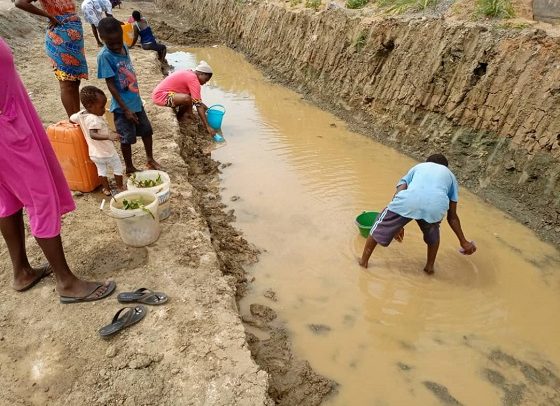Access to potable water sources and hygiene facilities is crucial for fulfilling the United Nations Sustainable Development Goals (SDGs). These goals aim to improve lives and protect the environment by 2030. However, more than 844 million of the world’s population live without access to safe drinking water.
A report in 2018 reported that 1 in 9 people travel more than 30 minutes every day to have access to water. There is a need to improve water sources to help prevent water illnesses and for hygiene purposes in the face of outbreaks, such as COVID-19 and Cholera. Current evidence shows that regular handwashing with soap is among the most effective ways of controlling the spread of COVID-19.
Health workers cannot perform essential lifesaving activities whenever there is a water shortage. Widespread waterborne illness that results from lack of access to clean water impacts almost every part of our lives.
The Ghanaian Case
In Ghana, reports show that about three million people struggle to meet their daily water requirements. Only 11 per cent of the population in the rural areas have access to water. Among this percentage, some fetch water from contaminated sources. This contamination is often difficult to filter out by water treatment facilities, and families collecting these polluted waters cannot boil the contamination out.
Statistics show that the leading cause of death for children under five in Sub-Saharan Africa is cholera and other waterborne diseases that steam from inadequate hand wash. The predicament has also caused Ghana’s child stunting rate to stand at 17.5 per cent, and the country is failing to make improvements.
Hospitals in the rural areas that perform live savings activities face water shortages. The hospitals that have access to clean and potable water are sometimes cut off the grid because of the inability to pay for water utilities.
The Root of it All
One major problem facing the democracy and development of Ghana is the ‘winner takes all’ attitude whereby political parties that win power take over all administrative work of the country. Over the years, politicians loot large sums of money while exploiting the interest of ordinary Ghanaians. Every four years, millions of Ghana Cedis are being paid to politicians as ex gratia while hospitals cannot access clean potable water to go on their daily activities.
Large sums of money are wasted on things that do not solve the problem of the ordinary Ghanaian. The government of Ghana is spending millions of Ghana Cedis on a place of worship whiles pregnant women, children, and sick persons are dying in our hospitals because health workers cannot access portable water.
Statistics show that only 13 per cent of Ghana’s 30.8 million population has access to safely managed sanitation services, and 22 per cent do not have hygiene services like handwashing facilities with soap and water. Despite the ongoing challenge, many of the country’s resources are not used ineffectively, and some people at the helm of affairs use state resources for personal gains.
The Way Forward
The country must intensify its efforts to provide clean and potable water to its citizens and the hospitals to help combat unrelenting pandemics like Cholera and COVID-19 widely spread because of unsafe hygiene practices.
The country should prosecute politicians and other civil servants who have unlawfully spent state money. These unaccounted resources can help maintain water provisions, improve technical assistance, and help extend the scope of water facilities to communities and hospitals at risk.
Photo Credit: Daily Guide Network

